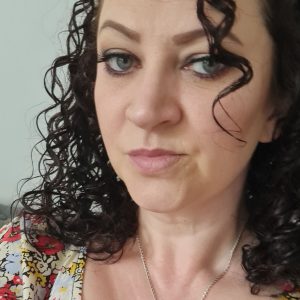
Neurodiversity Celebration Week (13 – 19 March 2023) is a worldwide initiative that aims to challenge stereotypes and misconceptions about neurological differences, including ADHD, autism, dyslexia and dyscalculia.
To celebrate the week, staff from mental health provider Cumbria, Northumberland, Tyne and Wear NHS Foundation Trust (CNTW) are sharing their experiences of neurodiversity.
Gemma Cullen, a community practitioner in the Children and Young People’s Service, wasn’t formally diagnosed with ADHD until she was 39:
“Produces good work when she puts her mind to it.”
“Lazy.”
“Talkative. A chatterbox.”
“Intelligent but just isn’t interested.”
“Needs constant reminders to focus.”
These are some of the remarks made throughout my school life by teachers.
Years after I finished school, my own son was given a diagnosis of ASD and ADHD aged seven. I knew very little about ADHD so I began researching how it affects people and how best to support him and it was like a light bulb went on in my head. My son and I are like two peas in a pod – I could absolutely resonate with all of the struggles he was facing.
Unlike some people with ADHD, I wasn’t typically ‘hyperactive’, I didn’t have endless energy, I wasn’t always on the go. Then I discovered how ADHD can sometimes present differently in girls and women.
These are some of the commonly reported symptoms:
Talkative – check!
- Mind constantly racing – check. There’s always so many thoughts going around my head, and a random song.
- Fidgety/difficulty sitting for long periods of time – check. In meetings I wouldn’t necessarily have to get out of my seat, although I’d be waiting for any opportunity to, but I would be constantly shifting my position, tapping my feet, or clicking a pen!
- On top of this was the inability to focus, often leaving meetings without a clue what happened or what my required jobs were. I spent half of my meetings daydreaming, looking out of the window, or focussing so hard on trying to pay attention that I wasn’t taking in what was being said.
On top of these things, my memory was poor, my organisational skills non-existent and time management was a real problem. Let’s not even get into emotion regulation skills!
I eventually spoke to my GP and they agreed to make a referral to the Adult ADHD team.
Fast forward to now. I am 39 years old and three months ago my ADHD diagnosis was confirmed.
I was also angry at the symptoms I had no control over and the thought of having to use strategies to help me manage things, potentially for the rest of my life.
At first, I really struggled with this. I felt sad for younger me. I contemplated how different things would have been had I known earlier. I was also angry at the symptoms I had no control over and the thought of having to use strategies to help me manage things, potentially for the rest of my life.
Then I began to accept it. I realised that having ADHD means I am creative, constantly thinking of new ideas, even if I’m not always able to execute them. I have so much understanding around my son’s struggles, although having two people with difficulties regulating their emotions living under one roof does not always make for a harmonious household!
I now work as a Community Practitioner in the Children and Young People’s Service Neurodevelopmental assessment team. I feel like I have found my passion. Having first-hand experience of ADHD means I can relate on a different level to the struggles the young people face. In addition to this, as a parent of a neurodivergent child, I have often faced the same struggles as the parents and carers I work with. I love being able to give advice on strategies and being able to vouch for their effectiveness.
I’m beginning to realise I am not lazy. I struggle with motivation and can become overwhelmed. If something is boring and I’m going to really struggle with it, my brain craves dopamine from fun, interesting and exciting activities…for me that does not include housework!
I’m still talkative but I prefer to think of this as being a great conversationalist. I am also very easily distracted, and can be very distracting to others, but I’m finding strategies to help with that.
Although I often struggle to starts tasks, give me a tight deadline to work towards and my ability to hyperfocus means I can achieve anything.
Although I often struggle to starts tasks, give me a tight deadline to work towards and my ability to hyperfocus means I can achieve anything.
I am currently being titrated onto medication to help with my symptoms and I finally feel like I can conquer anything.
I don’t feel sad for younger me anymore. I wouldn’t be who I am or where I am today if it wasn’t for the struggles I faced and overcame.
Find out more about neurodiversity on the Neurodiversity Celebration Week website.
If you think you might have ADHD, your GP or another health professional can refer you for an assessment by the Adult ADHD Service.
